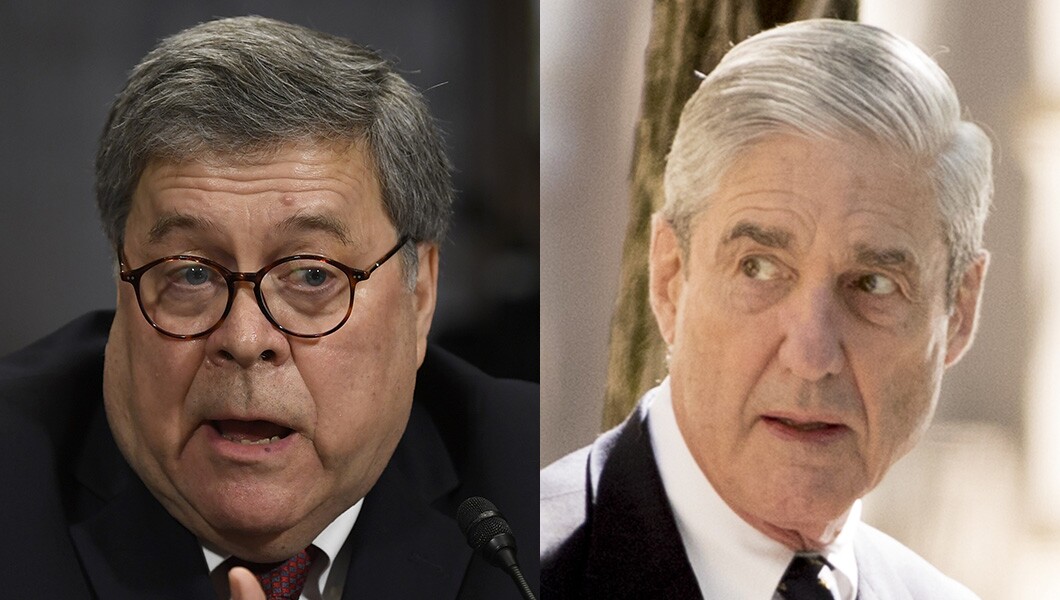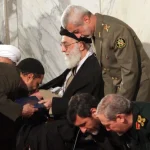
Former Attorney General William Barr is unleashing heavy criticism of former special counsel Robert Mueller to an unprecedented degree years after his Russia investigation came to an end.
“I don’t think he was on top of his game. I think he made some very serious errors,” Barr said in an interview with former New York Times editor Bari Weiss on her Honestly podcast published Thursday.
Mueller, a former FBI director, was appointed special counsel by Deputy Attorney General Rod Rosenstein in May 2017 after then-President Donald Trump fired FBI Director James Comey. The FBI’s Crossfire Hurricane counterintelligence investigation, which was examining links between Russia and Trump’s 2016 campaign, was wrapped into that effort along with an obstruction of justice inquiry.
SEE IT: MUELLER PROSECUTOR FINDS ‘ASTOUNDING’ PASSAGE IN BARR MEMO ON TRUMP OBSTRUCTION
Barr, who began his second stint as attorney general in February 2019, chastised Mueller over the members picked for his team and also reignited criticism of the special counsel’s handling of the obstruction aspect of the investigation.
“He goes out and hires partisan Democrats to make up his investigative team, which means half the country is going to be suspicious from the very beginning,” Barr told Weiss, according to the transcript. “That defeated the whole purpose of naming him. I think it was pretty evident within a few months of his taking the position that there had been no collusion.”

“But instead of stopping it at that point and letting the country move on, he took two instances which clearly on their face were not obstruction and which even his final report doesn’t try to argue were obstruction” and used them to “bootstrap the rest of the two-year investigation,” Barr added.
Mueller’s report was released in April 2019. The special counsel said his team could not establish a criminal conspiracy between Russia and the Trump campaign. In addition, the special counsel outlined 10 instances of possible obstruction of justice, including the firing of Comey and a desire by Trump to fire Mueller, but did not reach any conclusions on them. Mueller also said he “determined not to apply an approach that could potentially result in a judgment that the president committed crimes” but that “while this report does not conclude that the president committed a crime, it also does not exonerate him.”
Before releasing Mueller’s report, Barr disclosed that he and Rosenstein concluded that there was not sufficient evidence to establish Trump committed an obstruction of justice offense. A Justice Department memo supporting Barr‘s decision not to prosecute former President Donald Trump for obstruction of justice in the Russia investigation was released without any redactions for the first time this week from a Freedom of Information Act legal fight.
Andrew Weissmann, a former Justice Department official and FBI general counsel who was known as Mueller’s “pitbull,” appeared on MSNBC on Wednesday and criticized what he said was a “shocking” document. The Russia investigation, which Trump derided as a “witch hunt,” is now under review by special counsel John Durham, who was appointed to the task by Barr.
Critics of Barr have long condemned his rollout of Mueller’s report, including his sending a letter to Congress with a summary of its findings that preceded the report’s release. But in speaking with Weiss, Barr expressed exasperation at what he said was the Mueller team’s failure to heed his request to deliver to him a report that could be released to the public immediately.
CLICK HERE TO READ MORE FROM THE WASHINGTON EXAMINER
“I asked him, when you give me the report, you have to sanitize it so I’m in a position to release it as soon as you give it to me because if there’s a delay between the time you give me the report and the time I can make it public under the law … a lot of damage can be done to the country, the stock market, and our foreign adversaries. People are going to wonder if the president’s going to jail. So you have to give it to me in a form in which I can release it,” Barr said.
The former attorney general said what he got, a report with no redactions and grand jury materials that needed to be concealed, forced him to come forward with a summary while redactions were implemented for roughly three weeks. This was despite Mueller saying he understood Barr’s directive to give him a report that could be release quickly, the former attorney general stressed.
“I don’t know why it was done. It was inexplicable to me,” Barr said. He said in the intervening period he had to tell people “what the bottom line was: that there was going to be no indictment of the president and, therefore, there was no collusion. He didn’t reach a decision on obstruction. I took the sentence from his conclusion and said while he didn’t find obstruction, he didn’t exonerate him. I put that in the letter. And then I said, however, I am making the decision based on the report, and I don’t find there was obstruction. And then I explained why I didn’t find there was obstruction. So half the letter is me explaining my decision — not Mueller’s decision. And I thought that was the responsible thing to do. People who are acting in good faith can scour that letter and not see anything misleading in it.”
He added: “The other thing I haven’t really understood what the thrust of this complaint is because we got the report out a couple of weeks later and if the stuff was so damaging, why didn’t Congress impeach him at that point? There were crickets. So the idea that I affected the thing by summarizing the report … was the left-wing throwing a tantrum because Mueller didn’t deliver the goods as far as they were concerned.”







